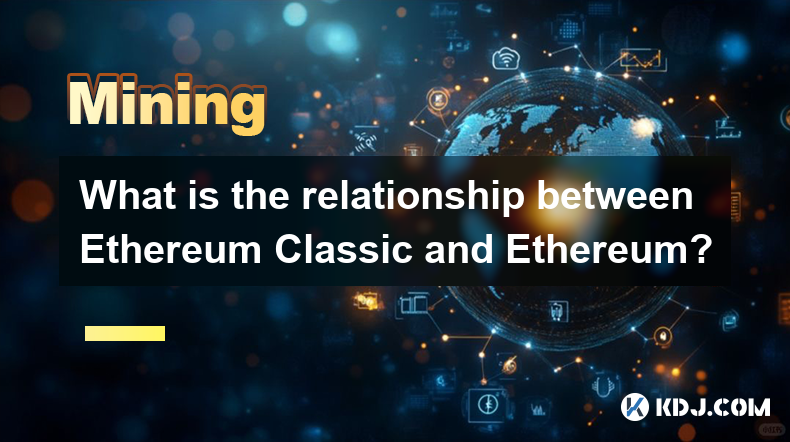-
 Bitcoin
Bitcoin $92,857.3496
-1.03% -
 Ethereum
Ethereum $1,750.4828
-2.45% -
 Tether USDt
Tether USDt $1.0005
0.05% -
 XRP
XRP $2.1885
-2.18% -
 BNB
BNB $597.4359
-1.69% -
 Solana
Solana $149.8729
-1.30% -
 USDC
USDC $1.0000
0.01% -
 Dogecoin
Dogecoin $0.1788
-0.25% -
 Cardano
Cardano $0.7255
3.02% -
 TRON
TRON $0.2464
0.28% -
 Sui
Sui $3.2757
10.22% -
 Chainlink
Chainlink $14.8489
-0.12% -
 Avalanche
Avalanche $22.0620
-1.11% -
 Stellar
Stellar $0.2755
2.43% -
 UNUS SED LEO
UNUS SED LEO $9.2218
1.65% -
 Toncoin
Toncoin $3.1533
-0.18% -
 Shiba Inu
Shiba Inu $0.0...01341
-1.13% -
 Hedera
Hedera $0.1856
1.66% -
 Bitcoin Cash
Bitcoin Cash $349.6685
-3.25% -
 Polkadot
Polkadot $4.1453
0.80% -
 Litecoin
Litecoin $82.8054
-1.43% -
 Hyperliquid
Hyperliquid $17.9889
-3.15% -
 Dai
Dai $1.0001
0.00% -
 Bitget Token
Bitget Token $4.4327
-1.75% -
 Ethena USDe
Ethena USDe $0.9995
0.02% -
 Pi
Pi $0.6476
-1.41% -
 Monero
Monero $227.9399
-0.28% -
 Uniswap
Uniswap $5.8086
-3.78% -
 Pepe
Pepe $0.0...08567
-4.18% -
 Aptos
Aptos $5.4495
1.50%
What is the relationship between Ethereum Classic and Ethereum?
Despite sharing a historical foundation, Ethereum Classic and Ethereum diverged after a hard fork in 2016, leading to distinct technical approaches, community dynamics, and transaction replay protection mechanisms.
Feb 26, 2025 at 07:30 am

Ethereum Classic vs. Ethereum: Key Points
- Historical Origins: Ethereum Classic is the original blockchain that emerged from the Ethereum project, while Ethereum represents the fork that was created in response to the DAO hack in 2016.
- Forking Event: The DAO hack led to a split within the Ethereum community, with some developers advocating for a hard fork that would reverse the hack, and others supporting a more conservative approach. The hard fork resulted in the creation of Ethereum, while the original chain continued as Ethereum Classic.
- Technical Differences: Ethereum Classic adheres to the original Ethereum protocol, retaining its proof-of-work (PoW) consensus mechanism. Ethereum, on the other hand, has undergone several upgrades, including the switch to a proof-of-stake (PoS) mechanism in 2022.
- Transaction Replay Protection: To prevent replay attacks after the fork, Ethereum implemented a mechanism to invalidate transactions replayed on both chains. This ensures that transactions executed on one chain are not valid on the other.
- Community Support: Ethereum Classic has a dedicated community that values the stability and immutability of the original Ethereum blockchain. Ethereum has a much larger and more active community, supported by a wide network of developers, miners, and ecosystem participants.
Comprehensive Guide to the Relationship between Ethereum Classic and Ethereum
Historical Origins
Ethereum Classic originated as the foundation of the Ethereum project, conceptualized in 2013 by Vitalik Buterin. The Ethereum blockchain was launched in 2015, introducing a revolutionary platform for decentralized applications. However, in 2016, a critical event occurred known as the DAO hack, which compromised millions of ETH from the decentralized autonomous organization (DAO) smart contract.
Forking Event
The DAO hack triggered a heated debate within the Ethereum community. Some members advocated for a hard fork, which would essentially rollback the blockchain to a state before the hack, reversing its consequences. Others, including Buterin, supported a more conservative approach, arguing that modifying the blockchain would undermine its immutability and decentralization.
The conflicting perspectives led to a split in the Ethereum community, resulting in the creation of two separate blockchains. The blockchain that followed the hard fork became Ethereum, while the original chain remained as Ethereum Classic. This fork marked a pivotal moment in the history of Ethereum, shaping its evolution and the relationship between the two chains.
Technical Differences
Ethereum Classic has maintained the original Ethereum protocol, which employs a proof-of-work (PoW) consensus mechanism. This mechanism relies on miners to secure the network by validating transactions through intensive computational power. Ethereum, on the other hand, has undergone significant upgrades since the fork, including the transition to a proof-of-stake (PoS) consensus mechanism in 2022.
PoS shifts the validation process from miners to validators, who stake their ETH to support the network and earn rewards for validating blocks. This approach reduces the energy consumption and environmental impact associated with PoW, while potentially enhancing scalability and security.
Transaction Replay Protection
Following the fork, a crucial challenge emerged: preventing replay attacks. Replay attacks involve replaying a transaction on one chain after it has been executed on the other, potentially leading to duplicate execution and unintended consequences.
To address this issue, Ethereum implemented a replay protection mechanism. Transactions executed on Ethereum are marked with a unique identifier that is then rejected on Ethereum Classic. Similarly, transactions on Ethereum Classic bear a distinct identifier that is invalid on Ethereum. This mechanism ensures that transactions remain valid only on their respective chains, preventing potential fraud or double-spending.
Community Support
Ethereum Classic is supported by a dedicated community that values the stability and immutability of the original Ethereum blockchain. They prioritize preserving the integrity and decentralization of the platform, emphasizing its potential as a secure and reliable foundation for decentralized applications.
Ethereum, on the other hand, has amassed a significantly larger and more active community. The Ethereum ecosystem consists of a diverse network of developers, miners, businesses, and enthusiasts who contribute to its growth, innovation, and adoption. The extensive ecosystem support fuels the development of new applications, tools, and services,
Disclaimer:info@kdj.com
The information provided is not trading advice. kdj.com does not assume any responsibility for any investments made based on the information provided in this article. Cryptocurrencies are highly volatile and it is highly recommended that you invest with caution after thorough research!
If you believe that the content used on this website infringes your copyright, please contact us immediately (info@kdj.com) and we will delete it promptly.
- How to Invest in Bitcoin According to Former Goldman Sachs Executive
- 2025-04-25 01:30:12
- JACKBIT Emerges as the Best Bitcoin Casino for 2025, Praised for Its No KYC Policy and Instant Withdrawals
- 2025-04-25 01:30:12
- ruya Becomes the First Islamic Bank to Offer Bitcoin and Virtual Asset Investments
- 2025-04-25 01:25:12
- Bitcoin reserves on cryptocurrency exchanges have dropped to their lowest level in more than six years
- 2025-04-25 01:25:12
- Bitcoin Soars : Satoshi Nakamoto’s Colossal Fortune
- 2025-04-25 01:20:12
- Don't Miss BTFD Coin's FINAL100 Bonus and $0.0002 Entry—Presale Ends May 26
- 2025-04-25 01:20:12
Related knowledge

How to judge the stability and reliability of the mining pool?
Apr 19,2025 at 02:08pm
When engaging in cryptocurrency mining, choosing the right mining pool is crucial for maximizing your returns and ensuring a stable mining experience. The stability and reliability of a mining pool can significantly impact your overall success in mining. Here, we will explore the key factors to consider when evaluating the stability and reliability of a...

How to deal with abnormal noise during mining machine operation?
Apr 17,2025 at 01:35am
Mining machines are essential tools for cryptocurrency miners, but they can sometimes produce abnormal noises that may indicate underlying issues. Understanding how to identify and address these noises is crucial for maintaining the efficiency and longevity of your mining equipment. This article will guide you through the process of dealing with abnorma...

How to choose the right ASIC mining machine model?
Apr 21,2025 at 08:00am
Choosing the right ASIC mining machine model is crucial for maximizing your returns in cryptocurrency mining. The market offers a variety of ASIC miners, each with its own set of specifications and performance metrics. Understanding the key factors that influence your choice can help you make an informed decision that aligns with your mining goals and b...

How to maintain anonymity when mining?
Apr 17,2025 at 06:01pm
Maintaining anonymity when mining cryptocurrencies is crucial for many miners who wish to protect their privacy and security. This article will guide you through various strategies and tools that can help you achieve a high level of anonymity while engaging in mining activities. Understanding the Importance of Anonymity in MiningAnonymity in the context...

How to automate mining tasks through scripts?
Apr 18,2025 at 01:29pm
In the world of cryptocurrency, mining remains a crucial activity for generating new coins and securing blockchain networks. Automating mining tasks through scripts can significantly enhance efficiency and reduce manual labor. This article delves into the intricacies of automating mining tasks, providing a comprehensive guide on how to achieve this usin...

How to switch mining algorithms in the mining pool?
Apr 18,2025 at 12:00pm
Switching mining algorithms in a mining pool can be a strategic move for miners looking to optimize their mining operations. This process involves several steps and considerations, and understanding how to navigate it can significantly impact a miner's efficiency and profitability. In this article, we will explore the detailed steps required to switch m...

How to judge the stability and reliability of the mining pool?
Apr 19,2025 at 02:08pm
When engaging in cryptocurrency mining, choosing the right mining pool is crucial for maximizing your returns and ensuring a stable mining experience. The stability and reliability of a mining pool can significantly impact your overall success in mining. Here, we will explore the key factors to consider when evaluating the stability and reliability of a...

How to deal with abnormal noise during mining machine operation?
Apr 17,2025 at 01:35am
Mining machines are essential tools for cryptocurrency miners, but they can sometimes produce abnormal noises that may indicate underlying issues. Understanding how to identify and address these noises is crucial for maintaining the efficiency and longevity of your mining equipment. This article will guide you through the process of dealing with abnorma...

How to choose the right ASIC mining machine model?
Apr 21,2025 at 08:00am
Choosing the right ASIC mining machine model is crucial for maximizing your returns in cryptocurrency mining. The market offers a variety of ASIC miners, each with its own set of specifications and performance metrics. Understanding the key factors that influence your choice can help you make an informed decision that aligns with your mining goals and b...

How to maintain anonymity when mining?
Apr 17,2025 at 06:01pm
Maintaining anonymity when mining cryptocurrencies is crucial for many miners who wish to protect their privacy and security. This article will guide you through various strategies and tools that can help you achieve a high level of anonymity while engaging in mining activities. Understanding the Importance of Anonymity in MiningAnonymity in the context...

How to automate mining tasks through scripts?
Apr 18,2025 at 01:29pm
In the world of cryptocurrency, mining remains a crucial activity for generating new coins and securing blockchain networks. Automating mining tasks through scripts can significantly enhance efficiency and reduce manual labor. This article delves into the intricacies of automating mining tasks, providing a comprehensive guide on how to achieve this usin...

How to switch mining algorithms in the mining pool?
Apr 18,2025 at 12:00pm
Switching mining algorithms in a mining pool can be a strategic move for miners looking to optimize their mining operations. This process involves several steps and considerations, and understanding how to navigate it can significantly impact a miner's efficiency and profitability. In this article, we will explore the detailed steps required to switch m...
See all articles























































































